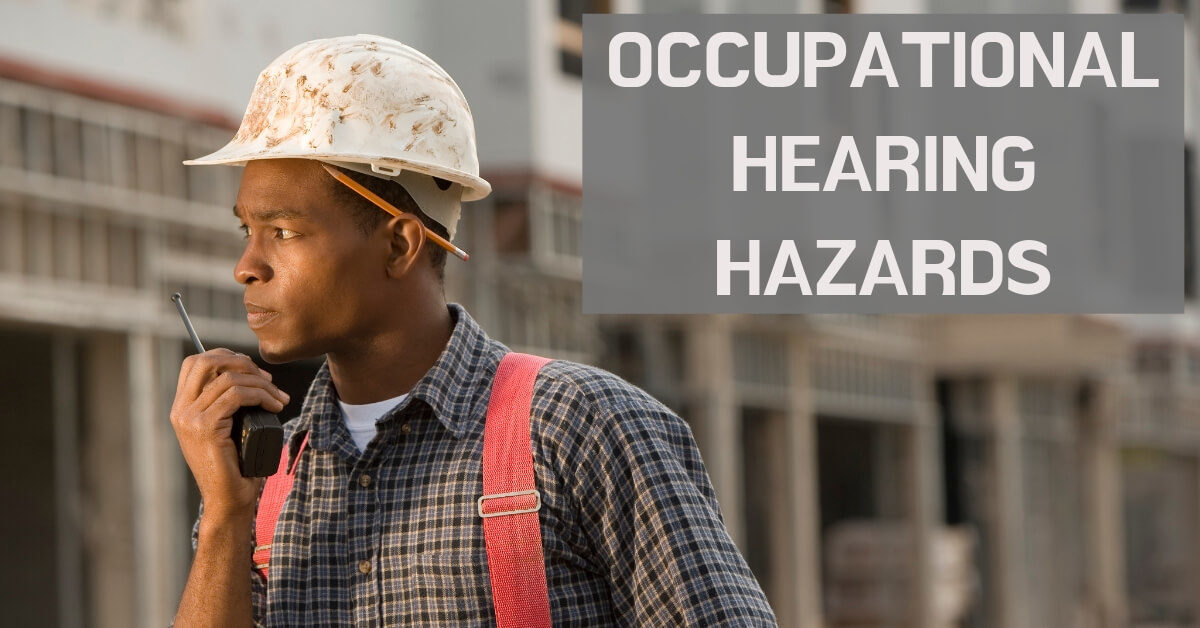Work can be a noisy place at times, especially if you work in certain industries. While you might complain about it occasionally to your work colleagues, it could actually be damaging your ears. Twenty-two million workers are exposed to potentially damaging noise at work each year. It’s important to remember that if unaddressed, your boss could actually be breaking the law.
Loud sounds at work
If you are continually exposed to sounds that are at 85 decibels for eight hours, this is enough to cause hearing loss according to hearing experts. As the sound grows, it takes less time to damage hearing. Although 8 hours might seem like a long time, to demonstrate where you might encounter the sound scenario above, imagine you are standing next to an idling truck (85db) for the whole day at a construction site. It only takes one day of exposure to permanently damage your hearing at work. Those in the manufacturing industries are also at risk as heavy machinery be even louder.
Professional and amateur musicians also need to be careful. A typical rock concert is up to 120 dB, which is dangerous for both performers and spectators. And it’s not just rockers who need to be careful. In Norway, a study conducted in a classical orchestras found that 43.6% of the musicians within that orchestra experienced a form of hearing loss.
Let’s not forget industries like farming and education, areas people wouldn’t normally associate with having a high risk of hearing loss. But working with large machines means that farming is actually one of the most dangerous industries for hearing loss, and the sound of 30 children’s voices at top volume is enough to send ears ringing all round.
How hearing loss affects you at work
Hearing loss is not just a nuisance at work. Rather it could actually affect your performance, earning power, and endanger your safety.
Almost any job you can think of expect you to work closely in teams, and liaise through face-to-face and technological means. When information is not passed around as efficiently (due to difficulties in receiving that information) then individual performance drops, and it doesn’t bode well for the future of that person at the company.
It could also become a safety issue to have hearing loss, especially if you are working with heavy machines. If you can’t hear colleague’s words of warning, this could lead to more accidents. Construction and farm workers are especially particularly at risk. Finally, overall earning power is also diminished, as shown in some recent studies. Those with hearing loss derive less job satisfaction, and feel unconnected socially to their peers.
Your rights
With the rise in safety and health problems in the workplace, the Occupational Safety and Health Administration (OSHA) was started in 1971 to enforce a set of standards to protect workers from harm. The OSHA guidelines affirm that employers must foster a work environment which wont ‘cause death or serious physical harm to his employees’. Through strict standards set by this federal body, an average of $242 million is paid annually on workers’ compensation due to hearing loss.
As an employee, you are entitled to:
- Learn about the likely workplace hazards in your job.
- Look at previous records of employees who have developed hearing loss from working for the company.
- Ask OSHA to inspect your workplace if you think the noise levels constitute a health hazard and your employer is doing little to fix the issue.
Ways in which your employer can reduce noise levels
Could your employer be doing more to reduce noise in your workplace? Employers can attack noise levels on two fronts: through engineering changes and through administrative means.
- Engineering controls. Your manager needs to maintain of any loud so that it is running quietly as possible. Businesses could also switch to quieter technology, dampen sound through various materials, or even move the source noise from the places in which employers work.
- Administrative controls. Your employer can also rearrange times and staff to reduce employer exposure to noise. When employees are off work overnight, machinery could be run. Or they could limit employee exposure to machinery. Finally, your employer could provide areas of respite so others can take a break from the noise. These regular noise breaks have been shown to reduce the risk of hearing damage.
Absolute Audio
Are you suffering from work-related hearing loss and are concerned for your job performance? It is important to protect your hearing and make sure that your hearing abilities are at their best. Contact us at Absolute Audio for a consultation and hearing test today!

